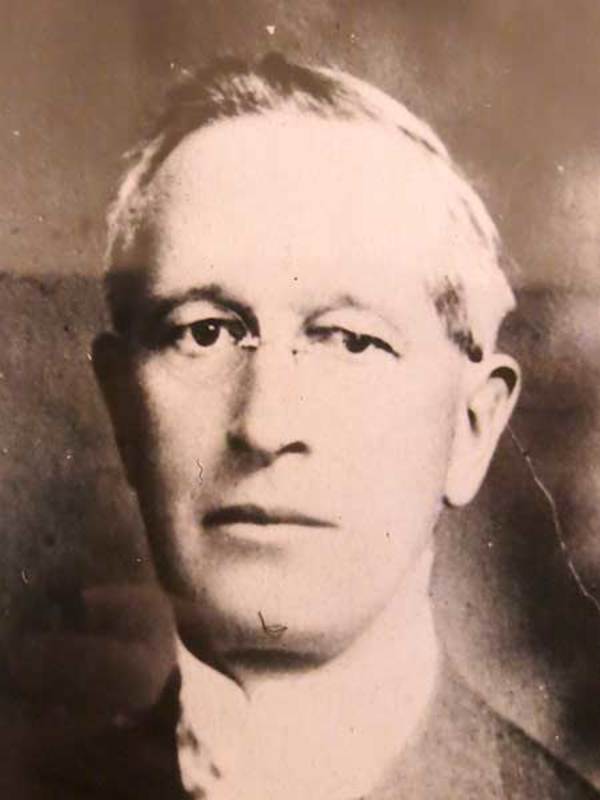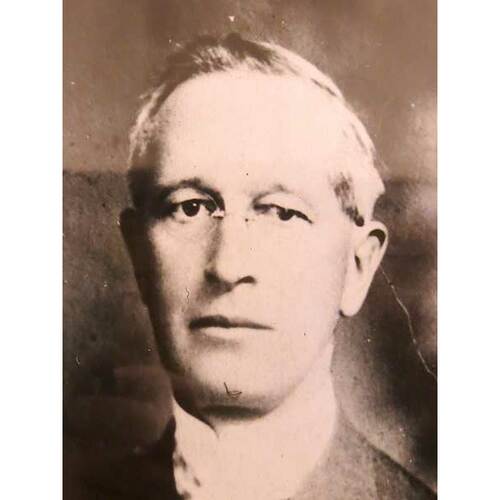
Source: Link
METCALFE, THOMAS LLEWELLYN, lawyer and judge; b. 21 Feb. 1870 in St Thomas, Ont., son of Thomas Halton Metcalfe, a building contractor, and Elizabeth Hutton; d. unmarried 2 April 1922 in Winnipeg.
Thomas Llewellyn Metcalfe’s origins reveal patterns of late-Victorian, middle-class, rural culture that were common to many who made careers as lawyers and judges in Canada before World War I. When he was six or seven years old, his family moved from Ontario to Manitoba, settling in the Oakland district, north of Portage la Prairie. Thomas would live close to his mother, who died in 1914, and his father, who died in 1921, for most of his life. He had three equally successful brothers: George, a Winnipeg businessman, W. E., a physician in Portage la Prairie, and Charles, a businessman, also in Portage la Prairie.
Educated in Portage la Prairie, Metcalfe applied to the Law Society of Manitoba to be a student-at-law at age 16. Despite having no further formal education, he would display, according to an obituary, “a knowledge and a wholly unexpected breadth of reading and learning.” On 6 Feb. 1889 he was articled to Winnipeg’s most distinguished lawyer, James Albert Manning Aikins. For reasons unknown, the required five years of articling were then assigned in turn to six other lawyers, mainly in Portage la Prairie, although the last was in Boissevain. After passing two examinations, Metcalfe paid his $100 fee for his call to the Manitoba bar on 13 Jan. 1894. Before the call, however, his father had to post a $400 bond to the Law Society of Manitoba guaranteeing payment of Metcalfe’s fees and Metcalfe’s obedience to the society’s rules. Metcalfe practised civil litigation with Robert Andrew Bonnar, who would specialize in criminal cases, and by 1904 he had formed a partnership with Eliphalet Edwards Sharpe. He was active on behalf of land investors and he regularly lectured on real property at the Manitoba Law School.
His being raised a Presbyterian and his lifelong devotion to amateur sports may have generated in Metcalfe a character that required a commitment to clear rules and the community’s enforcement of them. He was an ardent clubman, belonging to lacrosse, duck-hunting, canoe, and golf clubs and he supported local hockey teams. As well, he was a staunch member of the Liberal party, serving as a broker for patronage requests. His networking placed him on numerous royal commissions. Appointed to the commission for revision and consolidation of the statutes of Canada in 1902, he sat until 1907. Two years later he was named to another royal commission, on the condition of the fisheries of Manitoba, Saskatchewan, and Alberta. During 1919–20 he would chair the Winnipeg Electric Railway’s board of arbitration.
Appointed directly to the Court of King’s Bench of Manitoba on 22 May 1909 at age 39, one of Canada’s youngest ever superior court judges, Metcalfe was a legal formalist. “If the laws were unjust his lordship would reiterate [that] to rectify such injustice would only be the prerogative and the duty of the legislature . . . [not] of the judiciary.” It was no surprise, then, that in the trial in November and December 1919 of Robert Boyd Russell, a leader of the Winnipeg General Strike [see Mike Sokolowiski*], he enforced all procedural rules to the letter.
Metcalfe presided over the trials of several leaders of Canada’s most dramatic labour crisis. The trials of 1919–20 exposed his attitudes, social and legal, beginning with his rudely egalitarian views on women. “When women are taking up special obligations and assuming equal privileges with men . . . , ” he argued, “[they] are just as liable to ill treatment in a riot as men and can claim no special protection and are entitled to no sympathy; and if they stand and resist officers of the law they are liable to be cut down.” In the Russell case, his charge to a jury of male farmers, brought to Winnipeg as part of a strategy urged by the local, federally employed prosecutor, Alfred Joseph Andrews*, emphasized that “an intention to incite the people to take power into their own hands and to provoke them to tumult and disorder is a seditious intention,” citing an unnamed “eminent authority.” The jury promptly convicted Russell. On 3 Oct. 1921 Metcalfe moved to the Court of Appeal, perhaps in part as reward for consistent, predictable services to the law and the political order.
Metcalfe died in 1922 at age 52, much younger than either his mother, who died at 78, or his father, who died at 82. The official cause was high blood pressure and arteriosclerosis, but the Manitoba Free Press, hardly a strike supporter, insisted that it was the strike trials that led to his final stay in hospital. According to his own correspondence, he may have suffered from chronic illness since at least 1904. Despite 15 years of success at the bar and a judicial income for 13 years, Metcalfe left $46,313 in debts and only $48,194 in assets; at least on paper, he died almost bankrupt. Joseph Thorarinn Thorson, the first dean of the Manitoba Law School and later a judge, recalled Metcalfe as a “renegade” who “drank too much,” and had morals that were “not so wonderful,” but he conceded that he was “a charming person” and “a very good lawyer.”
AM, AMLJH, P 1298; C 2374, side B; C 2376, side A; C 2377–78, side B; P 5609, 5612–13, 5616–17. LAC, MG 27, II, D15, 67, 107, 129, 146, 167. Manitoba Free Press, 24 Dec. 1919; 12 March, 14 April 1920; 2–3 April 1922. Manitoba Weekly Free Press, 17 Aug. 1893. Winnipeg Free Press, 3 April 1979. Canadian men and women of the time (Morgan; 1912).
Cite This Article
DeLloyd J. Guth and Dale Brawn, “METCALFE, THOMAS LLEWELLYN,” in Dictionary of Canadian Biography, vol. 15, University of Toronto/Université Laval, 2003–, accessed September 4, 2024, https://www.biographi.ca/en/bio/metcalfe_thomas_llewellyn_15E.html.
The citation above shows the format for footnotes and endnotes according to the Chicago manual of style (16th edition). Information to be used in other citation formats:
| Permalink: | https://www.biographi.ca/en/bio/metcalfe_thomas_llewellyn_15E.html |
| Author of Article: | DeLloyd J. Guth and Dale Brawn |
| Title of Article: | METCALFE, THOMAS LLEWELLYN |
| Publication Name: | Dictionary of Canadian Biography, vol. 15 |
| Publisher: | University of Toronto/Université Laval |
| Year of publication: | 2005 |
| Year of revision: | 2005 |
| Access Date: | September 4, 2024 |



